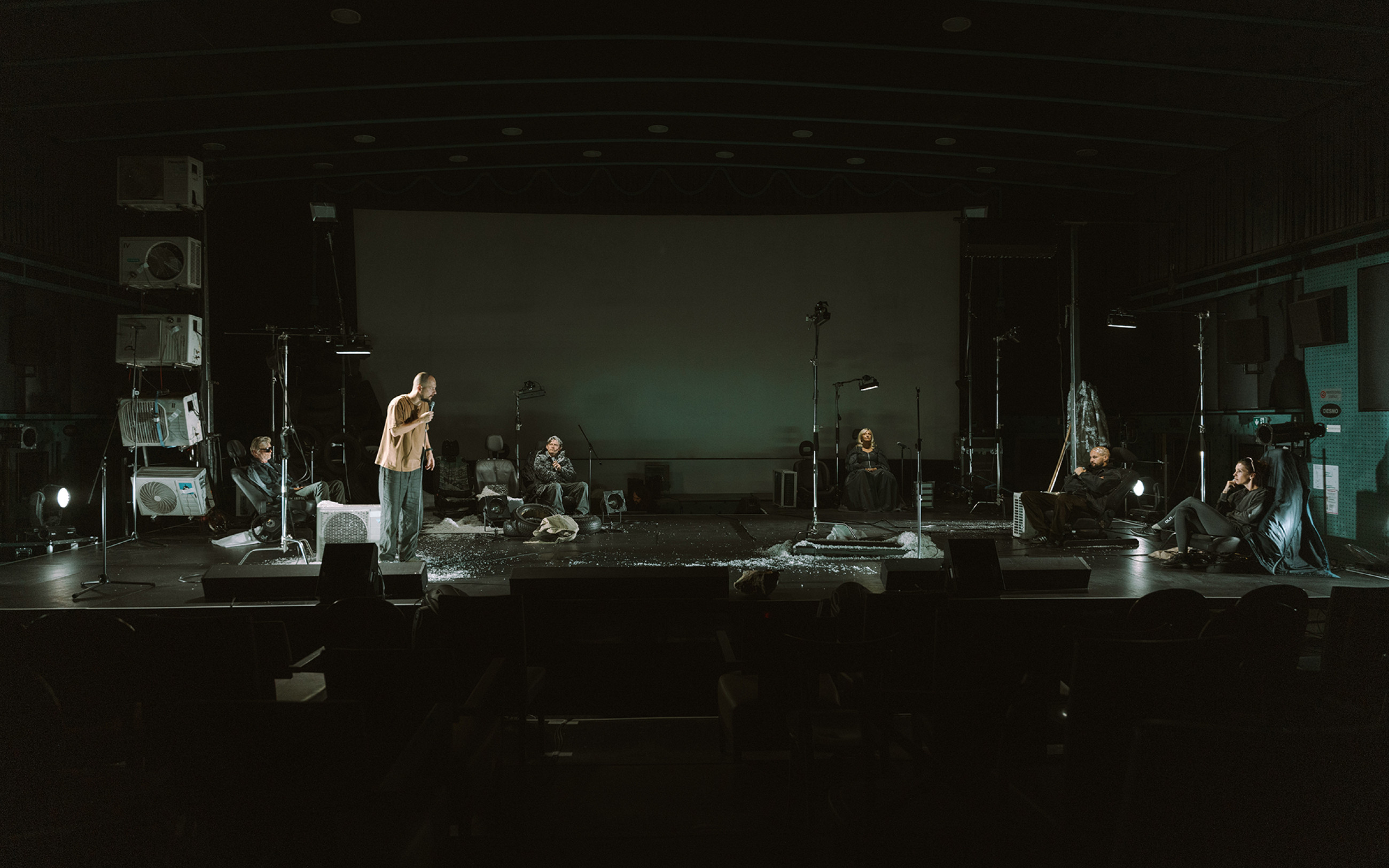Jon Fosse
Inside the Black Forest
An unnamed young man drives his car into the woods. “I was bored”, is the reason he gives for driving into the woods. First a little to the left, then to the right, then straight on, then a little further, and finally as far as the forest track, as far as the tractor track would go, very far, until, due of the snow and the night, he could go no further. In the middle of the night, he gets stuck in the snow and the cold, stranded in the forest, which in the tradition of European literature and drama is generally a place of terror and freedom, and above all a place of crucial change. In a long, poetic stream-of-consciousness swing, the man reflects on the reasons for his journey into the forest, on purpose and on coincidence, on the possibilities of a solution, on the possibility of just staying where he is, until morning or forever. His mental state oscillates between despair and a still cheerful resignation, in this last night he is at peace with himself and his demons, and then, in the delirium, the fragments and people from his life begin to appear to him.
Jon Fosse (1959), who won the Nobel Prize for Literature in 2023, also wrote the play Inside the Black Forest in the form of a novel titled A Shining. Fosse’s works cannot be interpreted in only one way; the story is not only a story, but also an account of the universal psychological state of man in the 21st century. Fosse is haunted by the same demons throughout his oeuvre: his characters are profoundly lonely, desperately searching for meaning; his subjects, fed up with modernity and exhausted by it, are driven into an extreme, almost dreamlike situation of confrontation with an inhuman world.
This confrontation raises the question of the sublime in modernity: what is the face of the sublime today? The Enlightenment concept of the sublime describes the emotions of a man from the Age of Enlightenment who becomes aware of Nature, a concept that is outside his world. Nature has a quantitative power, an immense and irresistible force, but it is distant from man – he is alienated from it, safe from it. The Anthropocene, the Atomic Age and late capitalism mark the same phenomenon – the beginning of the sixth human-induced extinction. This is our inescapable reality, an acute reality; we could also use the phrase “the future abolished”, which brings with it new fears and obsessions. How to live and carry on with everyday life? Inside the Black Forest draws on theoretical texts by Timothy Morton, Thomas Halliday, John Perlin, Raj Patel and others.
Dorian Šilec Petek (1995) is a versatile theatre artist, best known as a set designer and director. At the Ljubljana City Theatre, he directed Ivan Vyrypaev’s Unbearably Long Embraces and Arthur Schnitzler’s The Lonely Way.
I svarte skogen inne, 2023
First Slovenian production
Premiere: 2. October 2025
Performance length is 1 hour and 50 minutes and has no pause.
Creators
Translator
Marija Zlatnar Moe
Director
Dorian Šilec Petek
Authors of additional texts
Eva Mahkovic and Dorian Šilec Petek
Composer
Andrej Kobal
Costume designer
Timotej Rosc
Language consultant
Martin Vrtačnik
Lighting designer
Andrej Hajdinjak
Sound designer
Miha Peterlič
Assistant to director
Selena Trontelj
The performance includes excerpts from Jon Fosse`s novels A Shining and Septology. The additional text is written by Eva Mahkovic and Dorian Šilec Petek.
Actors
Jernej Gašperin
Nina Rakovec
Jaka Lah
Jure Rajšp as guest
Judita Zidar
Boris Kerč
and Andrej Kobal
Opening in October 2025 in the Komuna Cinema
All performances for the Small Stage subscription holders and regular will take place in the Komuna Cinema.

